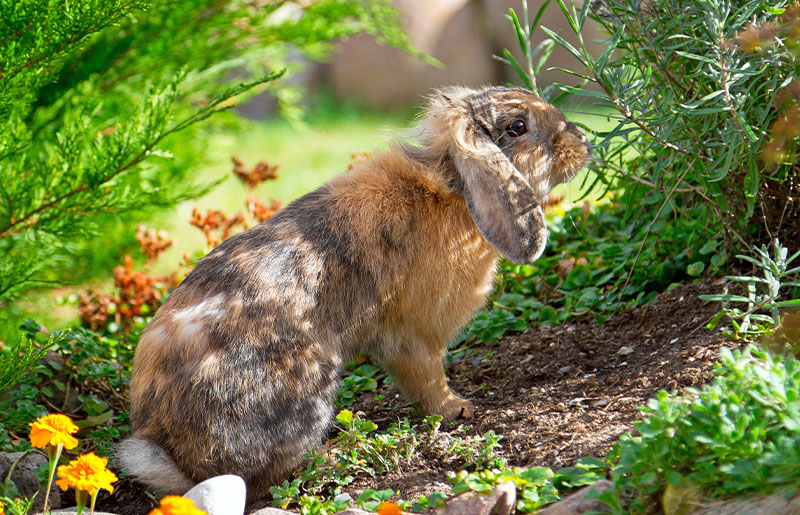
Dealing with Wildlife in Your Garden
by Terri Simon, Harris County Master Gardener
Some gardeners want to attract them; others, like myself, don’t want them around. My first warning to gardeners is to think twice before you begin feeding or planting to attract wildlife. They may be cute at first, but when they begin eating the produce that you have worked so hard to grow, then it can become a problem. Remember, critters, vermin, varmints, whatever you choose to call them, have no boundaries. Squirrels in particular are extremely clever and will steal, eat or damage the plants you have grown. They will invite their friends. Before you know it, you will be hosting a squirrel fest. Raccoons are nearly as bad.
When dealing with wildlife that is attacking your garden, the first thing you should do is identify the animal. Are there scat droppings? There are websites that can help identify the culprits. Try this resource to see if you recognize the animal’s droppings. Do you see animal footprints around? Try checking online for an identification guide such as this one. There are many others. Birds may also appear to help themselves to the banquet. One thing to keep in mind is that the methods you choose should not prevent pollinators from pollinat- ing your plants.
Whatever method you choose, remember some are easier and much less expensive than others. Unwanted critters like an accumulation of trash. Get rid of any trash piles or debris around the garden or your yard. Another easy method is keeping your compost covered, and not leave pet food outdoors. For rural areas, let grasses grow around your fence line. Animals are wary of exposure and are less likely to venture out into open areas where they can be easily spotted. Your own pets can occasionaly keep pests away. Dogs and cats can be territorial. Be careful though, because sometimes your own pet is the guilty party raiding your garden goodies. A good friend of mine had her dog nearly wipe out her watermelon patch. Apparently, he had a sweet tooth.
Once you have identified the guilty party, you can try an exclusion method or repellents. Exclusion methods usually cost more money and work. Raised beds can help. Appropriate fencing such as wooden, plastic mesh, or metal wiring can be used. If your problem is deer, remember there is usually no plant that is completely deer proof. If deer are hungry enough, they will try any plant. They are also excellent jumpers and are capable of crawling beneath a plastic mesh fence.
Porcupines can climb, squirrels and rabbits are active at dusk and dawn. Birds can yank germinating seeds out of the ground. Many critters are anxiously waiting for the buffet to open.
Repellent methods can vary widely. Decide if you want to spray the individual plants or the entire garden itself. Some repellents are suited for landscape plants only, not edible produce. Read labels carefully. Check your garden daily so you can monitor any damage immediately. Remember that one repellent may deter some wildlife, but not others. One easy organic method to try for squirrels is chili powder. Spread it around the plants they are eating and see if that works. Also keep in mind that weather such as rain can wash away or Photo courtesy amazon.com dilute the repellent and then it must be reapplied. Sometimes animals adapt to the repellent and you must change gears and switch to another.
If you use traps to relocate the varmints please follow local and state laws. There are some tactics that are not effective. Fumigation, ultrasonic noise makers and broad spectrum insecticides that kill all pests in the area should not be used. Do some careful research once you determine who is attacking your garden. There are many available deterrents but time, money and effort are sometimes required. If all else fails, try planting a smaller garden patch away from your primary beds. Warning, this is not always effective. They are wild animals and may think of this as an appetizer. Good luck!
Source: Harris County Master Gardeners Urban Dirt Newsletter (March 2023 Edition)
About Urban Dirt
Each month, Harris County Master Gardeners publishes an informative, resourceful newsletter entitled "Urban Dirt". This article was derived from the March 2023 edition. To read the March 2023 edition of this newsletter, click the button below.





